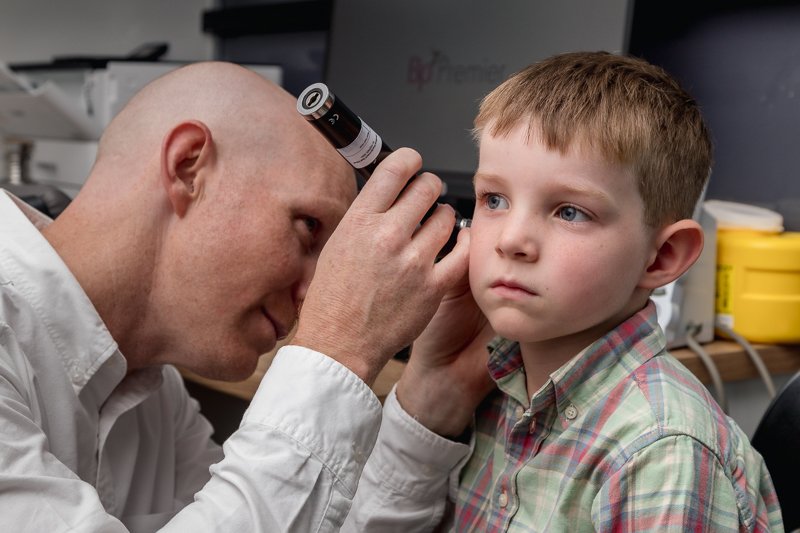Puberty is one of the most important stages of development in children. This process begins when a child’s brain releases sex hormones in either the ovaries for girls or the testes for boys. As a guide this takes place around the ages of 10-11 for girls and 11-13 for boys, it is, however, possible for this process to begin as early as 8-9 or as late as 13-14.
This process is known to last anywhere between 18 months and 5 years. The onset of this stage of growth and its duration is largely determined by genetic, nutritional and even social factors. As such, you may find it difficult to predict teenage behaviour and how to cope with it.
What can you expect?
While there are specific and distinct changes between girls and boys of this age, a few standard developments you can expect to see include oily skin or even acne in some cases, oily hair, heightened perspiration and body odour, and a growth spurt amounting to approximately 11cm, each year, in girls and 13cm in boys.
Additionally, certain parts of the body such as the head and hands grow faster than the limbs. Eventually, the body evens itself out.
Apart from this, young girls experience the following changes:
Breasts develop and this area may be tender
Hips widen
Pubic hair and underarm hair starts to grow
Menstruation cycle begins (periods may be irregular)
Clear or whitish vaginal discharge before the period (if itching, pain, or a strong odour is present, make sure to consult a doctor)
Males, on the other hand, experience the following:
Penis and testes start growing
Pubic, underarm and facial hair starts to show
Testosterone begins to be produced
Erection and ejaculation commence
Larynx or voice box becomes larger
The voice ‘breaks’ and deepens
Hold on - it’s not just physical changes
Apart from the noticeable physical changes, your child’s brain will also experience significant remodeling during this time, despite the fact that it’s already around 90% or 95% of the size of the adult brain. This process of remodeling continues well until your child is in their mid-20s.
Brain change will depend on factors including age, experience, and hormonal changes that take place during puberty.
Apart from these important changes, mood changes and energy level variations are normal for teenagers during this stage, given both the physical and mental changes taking place in their body. As hormones start spreading through their bodies, the brain also becomes more active, amplifying emotional responses and other processes including reasoning, critical thinking, and decision-making abilities.
Teens may also want to establish independence and their own identity at this point. At the same time, they may begin taking on more responsibility including finding part-time jobs or take up leadership positions.
While they may need your support, your children may resist any help you offer. You will also find that they become annoyed more often and are easily bothered.
Social and emotional changes of puberty will also manifest themselves, given that your child is beginning to make his or her decisions and understanding that their actions have consequences.
How to support your teenager through puberty
During this stage of growth, family health support is crucial for your teenager. Here, having candid conversations is of the utmost importance. This will tell your child that he or she has your support, guidance, and confidence. It will also make it easier for your teenager to open up to you.
In this process, try and understand how they feel (as difficult as that may be). Puberty is a confusing stage of growth and causes plenty of self-doubt, insecurity, anger, and confusion. If your child seems irritable and ill-tempered, remember that much of this has to do with chemicals in their brain – sometimes they can’t help it.
Another way you can show your support, without getting too involved, is to give them praise and recognition when they do the right thing. This will help you reinforce good and beneficial behaviours without being too heavy-handed about it.
You also need to make sure that your child has an outlet for his or her stress and energy. This could include after-school activities or other hobbies they enjoy. If your teenager does not have any way of dealing with the changes taking place inside him or her, this may lead to negative consequences including unhealthy coping mechanisms, mental illnesses, and other behavioural issues.
How can we help?
At Peregian Family Medical Centre, our goal is to provide you with complete family health support. Contact us to find out how we can give you and your teenager the support they need during puberty, 07 5471 2100.
Family Health: Supporting your teenager through puberty - blog sources
Introduction
Better Heath Channel
Hold on - it’s not just physical changes
Raisingchildren.net.au
Scary Mommy






